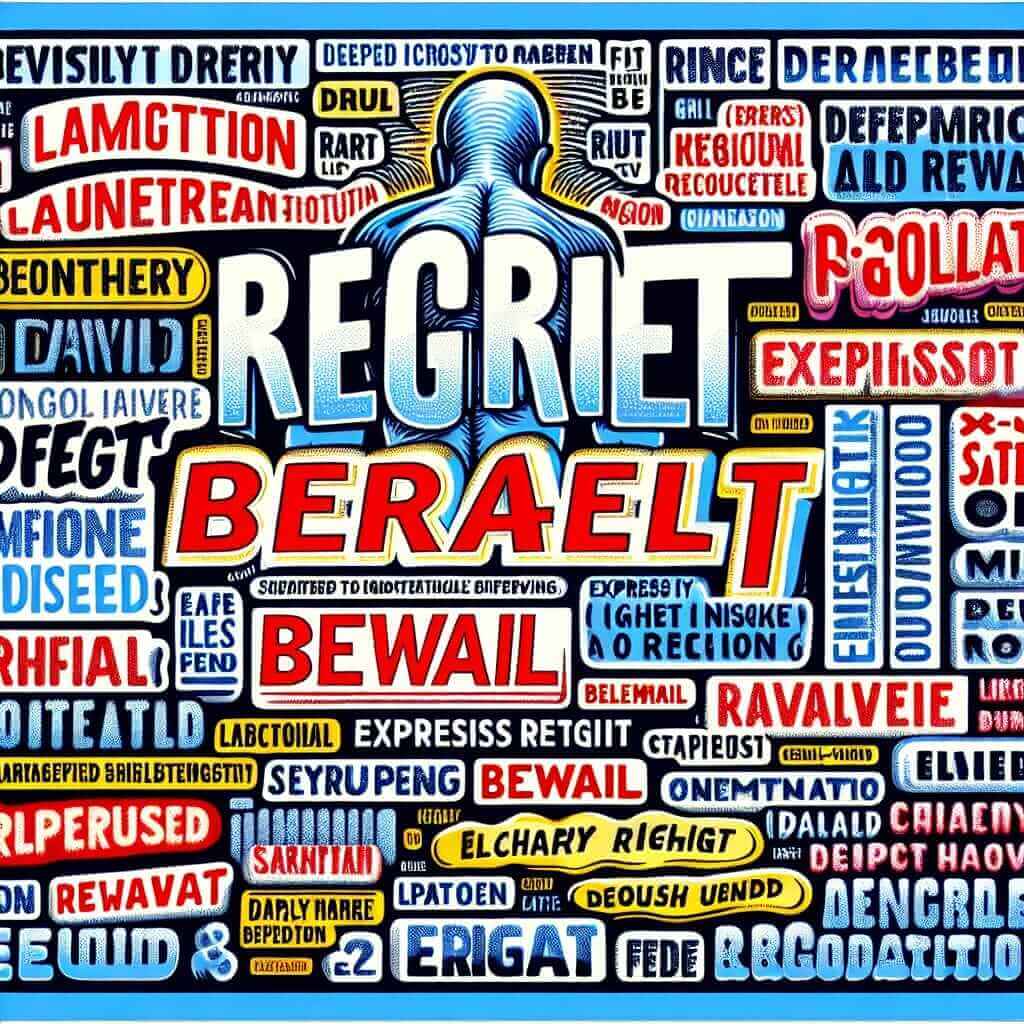Many English learners find the verb “regret” tricky because it can be followed by different grammatical structures, which can affect the meaning of what you want to say. Understanding these subtle differences is crucial for achieving a higher band score in your IELTS exam. This article will analyze the use of “regret + gerund” and “regret + noun phrase,” equipping you with the grammatical precision needed to express your ideas clearly and confidently.
Let’s look at some examples of how “regret” is used in different parts of the IELTS exam:
- Speaking Part 2: “Describe a time you had to make a difficult decision. Did you regret your decision?” (This example anticipates a “regret + noun phrase” or a “regret + gerund” structure).
- Writing Task 2: “Some people believe that technology has made our lives easier. Others believe that it has made life more complicated. Discuss both views and give your own opinion.” (A sentence like “Many people regret not learning about computers earlier” would fit into an essay on this topic and demonstrates “regret + gerund”).
- Listening Section 3: You might hear a student on a university campus saying, “I really regret choosing this course,” which exemplifies “regret + gerund”.
Understanding the Nuances of ‘Regret’
“Regret” indicates a feeling of sadness or disappointment about something that has happened or been done. It’s how we express wishing we had acted differently in the past.
Regret + Gerund
The Formula:
Regret + -ing verb (gerund)
What it Means:
This structure is used when you are sorry for an action you did. The gerund functions as the object of the verb “regret.”
How to Use It in the IELTS:
- Speaking: “I regret spending so much money on that concert ticket.”
- Writing: “The protagonist in the novel regrets leaving his family behind to pursue his dreams.”
Analyzing the Examples:
- In the first example, the speaker expresses remorse for a past action (spending too much money).
- In the second example, the writer conveys the character’s regret about an action that has already happened (leaving his family).
Regret + Noun Phrase
The Formula:
Regret + noun phrase (the thing you regret)
What it Means:
This structure is more formal and often used to announce bad news or express a formal apology. The noun phrase identifies the cause of the regret.
How to Use It in the IELTS:
- Speaking: “I regret to inform you that your flight has been cancelled.”
- Writing: “The company expressed deep regret for the inconvenience caused by the product recall.”
Analyzing the Examples:
- In the first example, the speaker uses a formal phrase to deliver unfortunate news.
- In the second example, the writer highlights the company’s apology for a negative situation.

Achieving Band 7+ Proficiency
To demonstrate a sophisticated grasp of English grammar in the IELTS, consider these tips:
- Varied Structures: Instead of repeatedly using “regret + gerund/noun,” explore synonyms like “lament,” “rue,” or “bewail” to showcase a wider vocabulary.
- Formal Tone: In Writing Task 1 (especially in letters requiring apologies or conveying bad news) and formal Writing Task 2 essays, favor “regret + noun phrase” for a more appropriate tone.
- Adding Complexity: Use conjunctions and transitions to connect your “regret” statements with reasons and explanations. For example, “I regret choosing this major, even though it seemed interesting at first, because I now realize my true passion lies in a different field.”
Common Mistakes to Avoid
- Incorrect Tense: Remember that “regret” usually refers to past actions. Use the appropriate past tense with the gerund (e.g., “regretted going,” not “regret going”).
- Misplaced Modifiers: Ensure the gerund or noun phrase clearly modifies the intended subject to avoid ambiguity.
Conclusion
Mastering the use of “regret” with gerunds and noun phrases is essential for expressing yourself accurately and authentically in the IELTS. By understanding the subtle differences in meaning and application, as well as incorporating the tips provided, you can boost your grammatical accuracy and achieve your desired band score. Continue practicing these structures in various contexts to enhance your fluency and confidence.